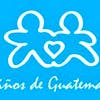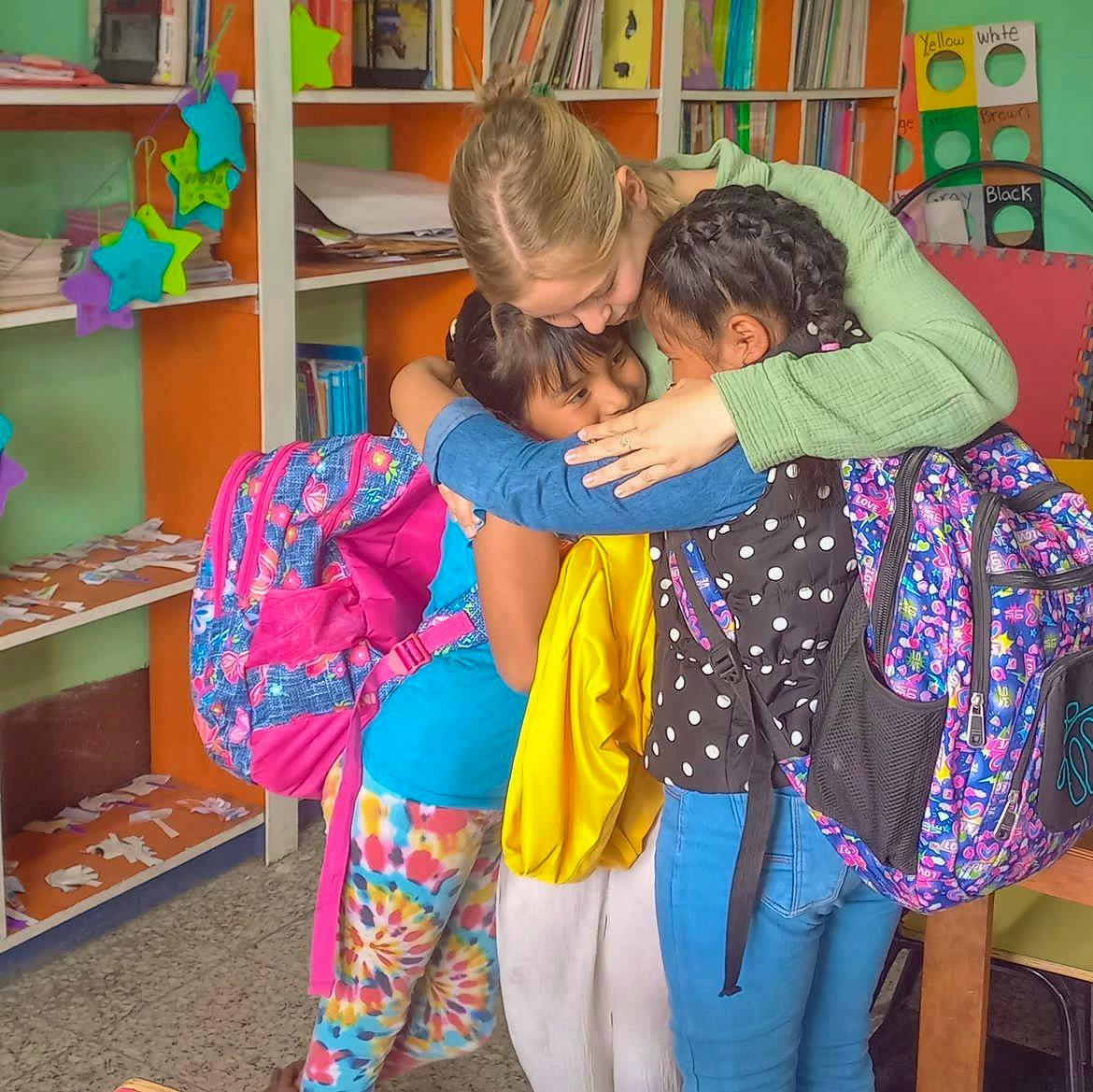The organization was founded by Marten Dresen, Annemieck Dresen, Sander Wirkenin in the Netherlands. first and Tthe Dutch branch started its fundraising activities. In 2007, Annemiek moved to Guatemala to start the organization here, together with Antigua local Carmen Paniagua. Sander joined them in 2008 in preparation for the construction of the first school.
2009 – The first elementary school opened, Nuestro Futuro, in partnership with the local community
2012 – Based on the success of the first school, a second elementary school was opened, El Porvenir, in nearby San Lorenzo
2014 – The first students graduate from Nuestro Futuro and construction begins on a middle school to accommodate them.
2015 – The middle school, El Básico, opens in Ciudad Vieja to continue the secondary education of our students.
Two of Mirna’s siblings are currently enrolled in Niños de Guatemala. Marten, Sander, Annemiek and Carmen are all still actively involved in NDG’s activities.
Vision
“We envision a world in which communities are educated, empowered, and entrepreneurial”
Our schools
While primary school is technically free and compulsory in Guatemala, the reality is that the government spends less than 3% on education. As a result, the majority of public schools are overcrowded and lack proper resources. What’s more, families are expected to pay for their children’s uniforms and school supplies, a prohibitive expense for many Guatemalans as more than half the population lives below the poverty line. As a result, only four out of ten children who enter the Guatemalan school system graduate from primary school, one of the lowest completion rates in the Western hemisphere. Additionally, Guatemala’s high school graduation rate is less than 20%.
Our teachers focus on experiential, student-centred learning. Their methodology is designed to foster a capacity for independent thought, social responsibility, and a passion for learning among our students.
Why does our work matter?
Guatemala'sGuatemala´s primary education completion is the 2nd lowest in Latin America
Secondary enrollment in Guatemala is the lowest in Latin America (56%)
Only 3/10 children graduate from 6th grade
31.7% of the population are illiterate
Half of the children under 5 suffer from chronic malnutrition
Our schools
Nuestro Futuro
The first school, Nuestro Futuro, is located in Ciudad Vieja and opened its doors in 2009. It has been certified by the Guatemalan Department of Education and follows the national curriculum to ensure that students receive a valid diploma upon graduation. Today, NF provides education to students in pre-K through sixth grade. It hosts 200 kids.
El Porvenir
El Porvenir was inaugurated in 2012. Located in the rural community of San Lorenzo el Cubo, it teaches students in pre-K, through sixth grade. Every year the school grows as we welcome another grade. EP hosts 200 kids.
Básico
Construction began on our Básico in 2014 to accommodate our first graduates from Nuestro Futuro. It opened its doors in 2015 and provides middle-school education to the graduates of both our elementary schools. I hosts around 100 students.
In total we have around 500 students.
Our programs
Social Work
Social Work plays an important role at all schools. The social workers are our first point of contact with the families and provide the primary link between the community and the organization.
They complete the social-economic studies we use to assess which families qualify for our projects. They also monitor the families’ progress throughout the child’s involvement in our schools. They conduct house visits with our families at least once a year or more often if necessary, but more often if the students home life or behaviour necessitates further involvement from the program.
Each month, parents are required to attend a workshop called “Escuela de Padres” where they learn about a wide range of topics aimed at helping them support their children more effectively both at school and in the home.
Psychology
Much more than what is learnt in the classroom. To this end, our Psychology department works tirelessly to address issues affecting our students’ mental health. The program ensures that each student is able to get the most out of their time in the classroom by identifying and working to resolve problems or past traumas from their home and/or community life that might be influencing their wellbeing. These issues can range from not having a quiet space at home to study to serious cases of abuse.
In addition to providing one-on-one and group therapy sessions, the program teams up with the Social Work Department to provide formal and informal education to the parents of our students. Together they provide a “Family Nurturing” workshop called Crianza con Cariño. Crianza con Cariño is an 8-week program that works with parents and children on non-violent communication and conflict resolution.
A few of the other programs that we carry out each year are one-on-one and group therapy sessions, a Family Alcoholics Support group, a Self-esteem and Hygiene program and other social services that our families and students would otherwise go without.
These programs are fundamental to the change that we are trying to bring to the communities we serve. Our students and their families depend on these programs to acquire skills regarding basic health and hygiene and other knowledge that improves the family’s well being.
Nutrition & Health
The Nutrition and Health Program ensures our students are healthy and well fed, allowing them to focus in the classroom. Each day, our mothers organize themselves in volunteer shifts to prepare nutritious meals. The mothers learn how to prepare healthy food from locally available produce, and their children enjoy the delicious meals they make.
Several times each year, our schools receive visits from local and foreign doctors and dentists to give them check-ups, extract teeth, and do vision screenings.
Medical care is financially out of reach for the communities we serve, and preventative health care is essentially unheard of among our families.
In addition to the frequent field clinics, we reinforce good hygiene habits in our schools every day of the year by washing hands and brush teeth after snack and lunch.
Educational Programs
English
All of our grades receive English classes. Given the strength of the tourism industry in Guatemala, even a basic grasp of English can dramatically improve a student’s chances of finding a job once he or she graduates from our program.
Kaqchikel
Students receive Kaqchikel (a local Mayan language) classes as part of their curriculum to reinforce a sense of Guatemalan culture and to maintain a connection with the Mayan community.
Aflatoun: Child Social and Financial Program
‘Aflatoun International offers social and financial education to children and young people around the world through its curriculum Aflatot, Aflatoun and Aflateen, empowering them to contribute to a more equitable future.
Computer Literacy
Our students receive computer classes from kindergarten. Like our English program, this helps to ensure that they are valuable candidates for jobs in the future.
Refuerzo
After normal hours, our teachers provide extra help to students who have fallen behind in math, reading, or writing. Known as refuerzo, or reinforcement, this takes place from 2:00 PM to 4:00 PM several days a week and makes an enormous difference in the students’ confidence and therefore their academic performance.
Expresión Artistica
Each class participates in Expresión Artística once a week between 2:00 PM and 4:00 PM. This program is designed to let children express themselves through art, music, and sport. A further goal is to keep them off the streets and away from negative influences.


